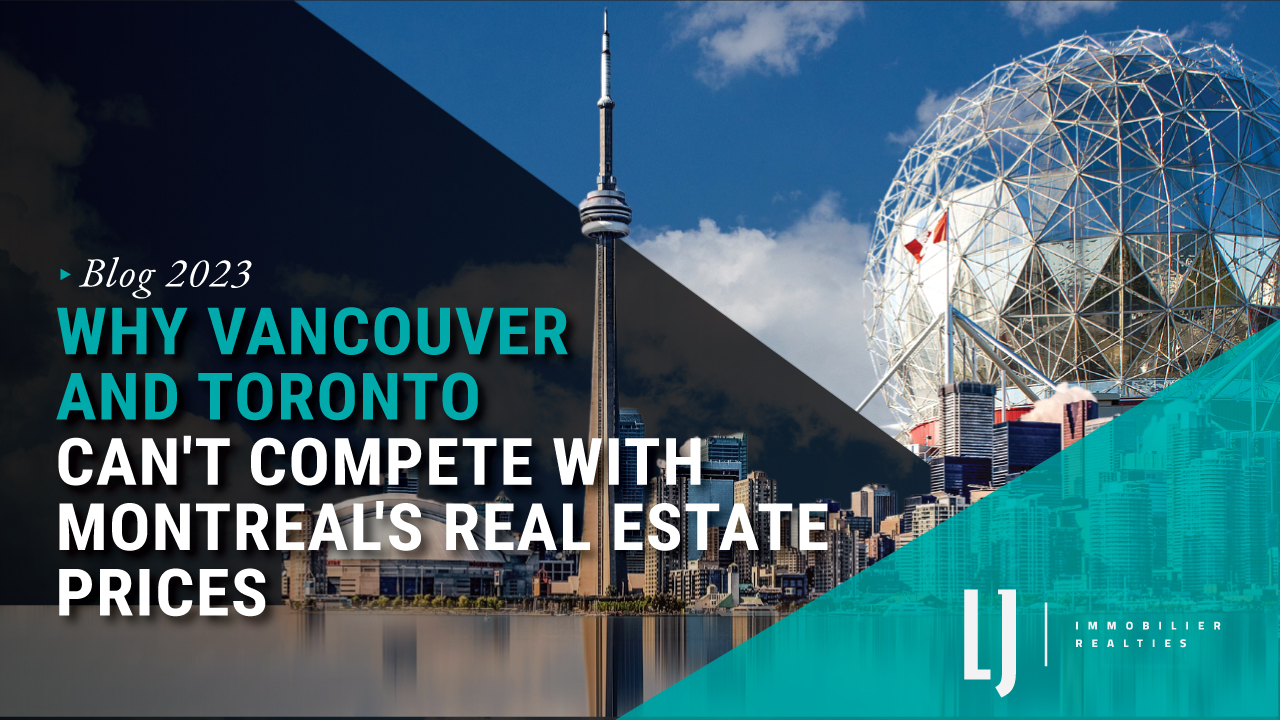
Montreal is a city known for its rich culture and history, as well as its excellent quality of life. On all fronts, it should be one of the priciest places to live in Canada – but it’s not. So, what’s behind this intriguing contrast?
If you’ve ever wondered why real estate in Montreal is significantly more affordable than Vancouver or Toronto, we’re here to explain why. There are lots of layers to this answer, so we’ll be breaking down the most important factors.
Income
Salaries in Quebec are somewhat lower compared to other provinces, and the income tax rates are the highest in the country. These two factors combined mean that residents have less disposable income to spend on housing, creating a more price-conscious market.
Population
Over the last decade, Montreal’s population growth has been notably lower than Toronto and Vancouver: Montreal has expanded by about 0.85% compared to 1.3% and 1.55%, respectively. Montreal’s approach to housing has been driven by a commitment to affordability and livability: by focusing on creating a supply of homes that meet the population’s needs, they’ve managed to keep prices more stable compared to cities like Toronto and Vancouver. More on that later!
Renting vs. owning
This next one is a significant factor in the equation – Montreal is a renter’s city. Approximately 63% of its residents live in a rental unit, and in turn, the city has implemented robust tenant rights and rent control policies. The dominant political demand in Montreal is for housing to be more affordable, rather than appreciate in value for the benefit of property owners.
Housing supply
Arguably the most crucial piece of the puzzle is the city’s responsiveness in building housing. When the CMHC (Canada Mortgage and Housing Corporation) studied housing prices in Canadian cities, they found that Montreal has much higher “supply elasticity” compared to Toronto and Vancouver.
What is supply elasticity?
Supply elasticity essentially means that when demand for housing increases in Montreal, the city responds by building more homes. In contrast, Toronto and Vancouver have the lowest supply elasticity, meaning they do not build many additional homes when demand rises.
To put this in perspective, despite having a population growth rate that’s 35% lower than Toronto, Montreal builds 20% more homes per resident. Impressively, about 65% of these Montreal homes are rental properties, compared to about 10% in Toronto. So, Montreal is not only building more homes relative to its population size, but also focusing on creating homes for everyday people rather than catering to investors.
Will Montreal always be this way?
Now, it’s important to understand that while Montreal real estate is more affordable, it’s not immune to market forces. Home prices have gone up along with the rest of the country, and they will likely continue to rise. However, the city’s unique blend of economic factors, housing policies, and construction responsiveness have made it a relatively accessible market – and that’s not likely to change anytime soon.
The bottom line
Montreal’s affordability is a result of several interconnected factors: lower incomes, higher taxes, slower population growth, a renter-friendly environment, and a commitment to building homes for residents rather than speculators.
Curious to know more about how different provinces’ housing policies and landscapes compare? We know a thing or two about Canadian real estate, so drop us a line and we’ll be happy to shed some light.





